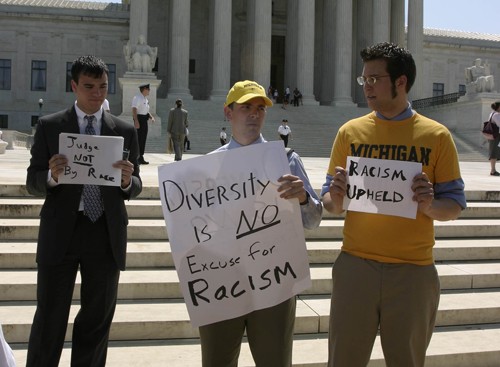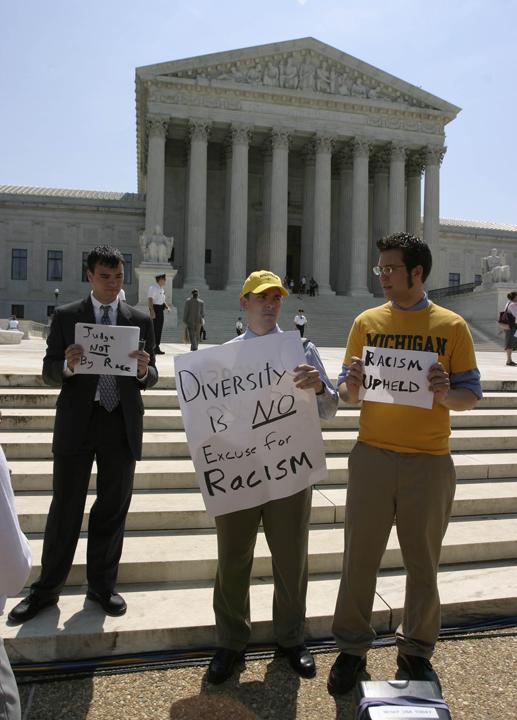Fordham Supports Affirmative Action Case

CHUCK KENNEDY
University of Michigan students protest the Supreme Court’s ruling on the use of affirmative action in college admissions, Monday, June 23, 2003. (Chuck Kennedy/KRT/MCT)
October 4, 2012
Fordham has joined several Jesuit universities in filing a “friend of the court” brief for a U.S. Supreme Court case challenging the University of Texas at Austin’s (UT) affirmative action policies, according to a release from Fordham. The joint universities filed the amicus brief in support of Texas’s policies in August.

Arguments before the Court start Oct. 10, but in a Sept. 11 article posted in America, the weekly Jesuit publication, Fordham President, the Rev. Joseph M. McShane, S.J., explained the university’s support for affirmative action. The case, known as Fisher v. University of Texas, revolves around a UT applicant’s challenges of school’s acceptance procedures as discriminatory against white students and in violation of Fourteenth Amendment’s equal protection clause. The schools in the brief argue against that interpretation.
“We believe a holistic method that includes race-based criteria is the best path to a diverse student body,” McShane said.
He also argued that it is the university’s right to set its own admission criteria, saying, “If the Supreme Court were to rule in Ms. Fisher’s favor and prohibit universities from looking to an applicant’s race as one factor in the admissions process, how long before we are compelled to mute unpopular points of view, or before we begin to use political litmus tests to determine who should and should not be allowed to teach at a university?”
According to a Wall Street Journal article, UT’s current policy is to admit students in the top 10 percent of all Texas high schools, many of which serve a majority Hispanic population. UT also considers race as a “plus” factor in admissions decisions for students not in the top 10 percent of their high schools. Fisher argues that this extra consideration is unnecessary, given the 10 percent policy.
Fordham’s affirmative action program works under New York State’s Higher Education Opportunity Program (HEOP), according to the amicus brief. The program admits approximately 125 “economically disadvantaged” students each year.
The brief also argued that the policy of affirmative action aids in realizing Fordham’s mission as a university founded “to serve the immigrant Church in New York.”
“In order to prepare citizens for an increasingly multicultural and multinational society, Fordham seeks to develop in its students an understanding of and reverence for cultures and ways of life other than their own,” the brief said. “Fordham has concluded that a diverse student body is necessary to develop such understanding and reverence.”
Fordham was joined in the brief by Boston College, Georgetown, Holy Cross, Marquette and San Francisco, all Jesuit institutions, as well as Notre Dame and DePaul Universities. The full brief can be found at the University of Texas website and McShane’s post can be found on the America website.











